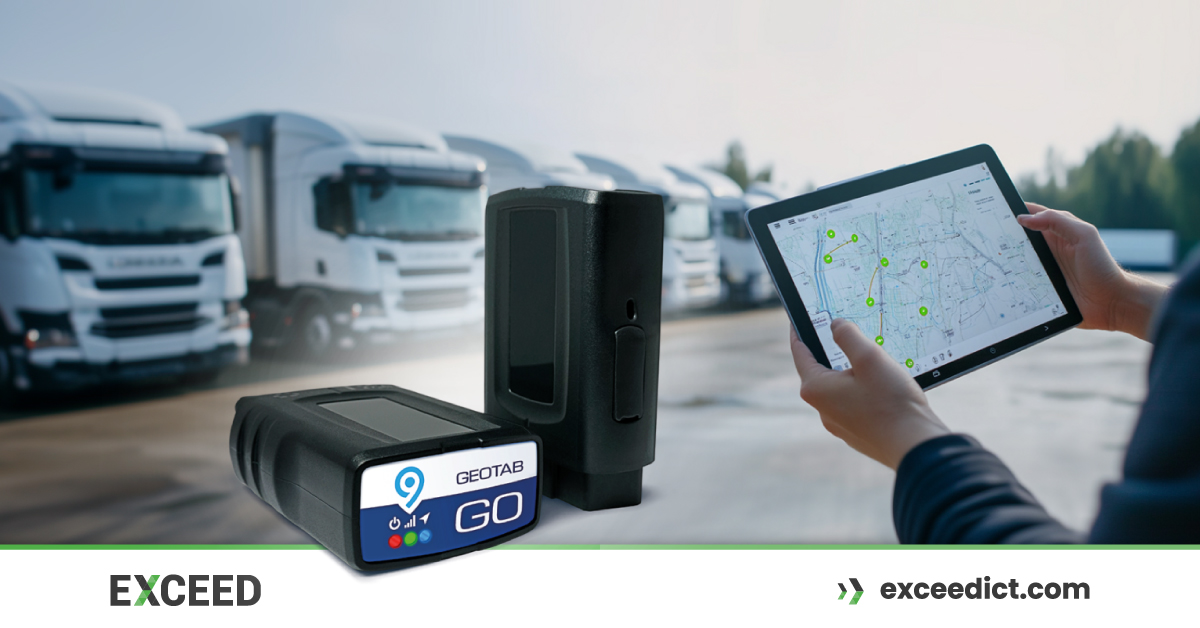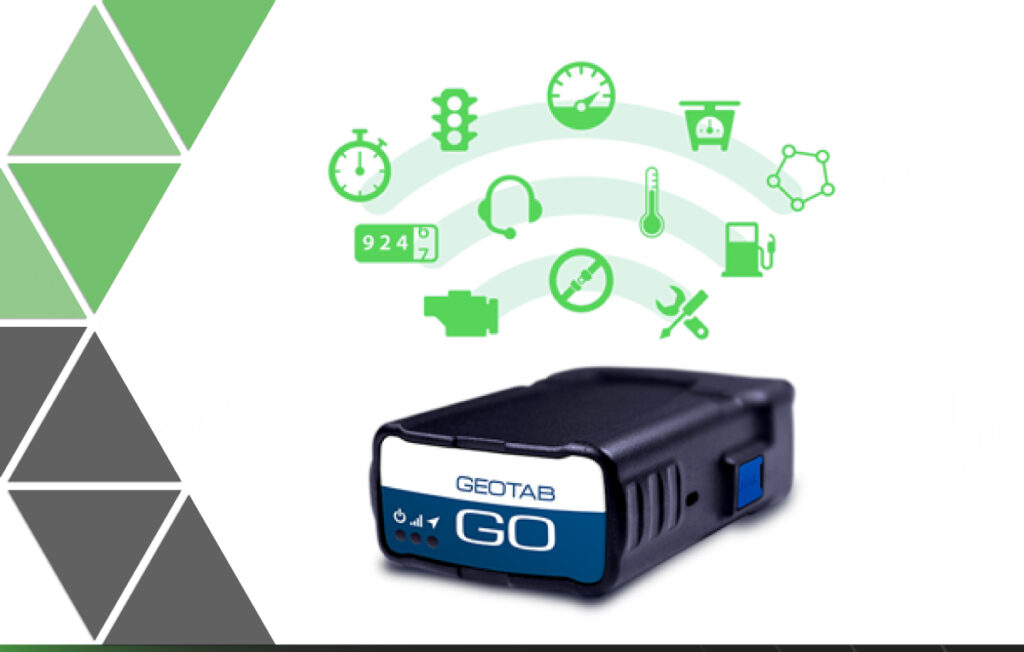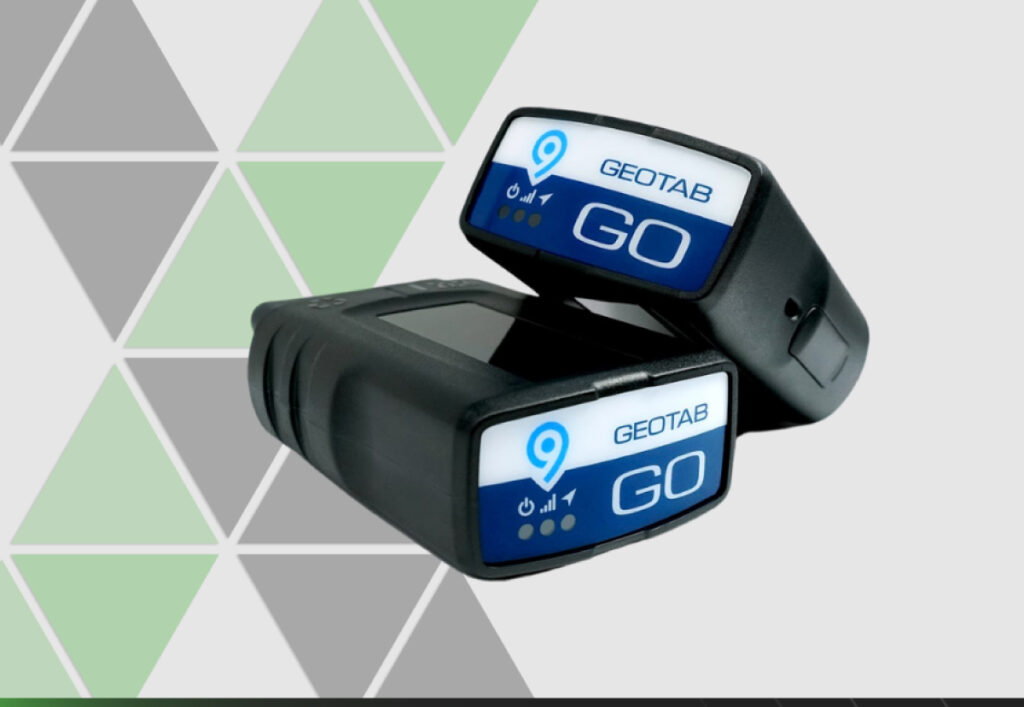
Geotab Telematics is one of the leading solutions in this space, providing businesses with real-time vehicle tracking, driver behaviour monitoring, and data-driven insights to enhance operational efficiency. Whether you run a small fleet of service vehicles or manage a large logistics operation, Geotab’s technology can help optimise performance, improve safety, and reduce costs.
This guide explores how Geotab Telematics works, its key features, and how Australian businesses can benefit from integrating it into their operations.
What Is Geotab Telematics?

Geotab is a global telematics provider offering fleet management software and hardware designed to collect, analyse, and present vehicle data. Through telematics devices installed in vehicles, businesses gain valuable insights into fleet performance, driver behaviour, fuel efficiency, and maintenance needs.
Geotab’s telematics system provides a cloud-based platform, MyGeotab, where businesses can track vehicles in real time, access historical trip data, and generate reports to improve decision-making. The platform is highly flexible, allowing integration with third-party applications and custom solutions to meet the needs of different industries.
Learn more about: Geotab Vehicle Fleet Management
Key Features of Geotab Telematics?
1. Real-Time Vehicle Tracking
One of the core features of Geotab Telematics is real-time GPS tracking, allowing businesses to monitor the location of their vehicles at all times. This feature helps improve route planning, reduce downtime, and enhance customer service by providing accurate ETAs.
Live tracking can also be used to improve security, as fleet managers can quickly respond to unauthorised vehicle movements or theft.
2. Driver Behaviour Monitoring
Geotab’s platform provides detailed insights into driver behaviour, including:
- Speeding
- Harsh braking
- Sharp cornering
- Idling time
By identifying risky driving habits, businesses can implement training programs to improve safety, reduce wear and tear on vehicles, and lower fuel consumption. A safer driving culture also helps reduce insurance costs and minimises the risk of accidents.
3. Data Analytics for Fleet Optimisation
Geotab’s data analytics tools allow businesses to monitor key performance metrics such as:
- Fuel usage and efficiency
- Engine diagnostics and maintenance alerts
- Distance travelled and route efficiency
By using this data, fleet managers can optimise vehicle use, identify inefficiencies, and implement strategies to reduce costs. Predictive maintenance alerts also help prevent unexpected breakdowns, ensuring that vehicles remain operational.
4. Compliance and Safety
Australian businesses operating fleets must comply with various regulations, including Chain of Responsibility (CoR) laws and driver fatigue management requirements. Geotab helps businesses meet compliance standards by:
- Tracking driver hours and rest periods
- Ensuring vehicles meet safety inspection requirements
- Monitoring vehicle loads and driving conditions
By automating compliance tracking, businesses can avoid hefty fines and ensure that their operations align with industry regulations.
5. Open Platform and Integration Capabilities
Geotab’s open-platform approach allows businesses to customise their telematics solutions by integrating with third-party applications. The Geotab Marketplace offers a wide range of add-ons, including:
- Fuel card integrations
- Workforce management software
- Asset tracking solutions
This flexibility ensures that businesses can tailor their telematics system to their specific operational needs.
6. Electric Vehicle (EV) Fleet Support
With the growing adoption of electric vehicles in Australia, Geotab provides advanced EV fleet management solutions. The platform can track:
- Real-time charge levels
- Charging locations and durations
- Battery state of health
This data helps businesses maximise the efficiency of their EV fleets and plan charging schedules effectively to reduce downtime.
How Geotab Telematics Benefits Australian Businesses?
Implementing Geotab Telematics provides several benefits for businesses across different industries, including logistics, construction, public transport, and service-based companies.
Increased Productivity
By optimising routes and reducing idle time, businesses can complete more jobs in less time. Automated reporting and insights also save fleet managers time on manual tracking and paperwork.
Enhanced Safety

By monitoring driver behaviour, businesses can proactively address safety risks and provide targeted training. Reducing incidents of speeding, harsh braking, and fatigue-related accidents helps protect employees and assets.
Lower Operational Costs
Optimising fuel usage, reducing maintenance costs, and preventing vehicle breakdowns contribute to significant cost savings. With accurate tracking, businesses can also reduce unauthorised vehicle use and excessive idling.
Improved Compliance
With automated tracking of driver hours and vehicle maintenance schedules, businesses can ensure compliance with National Heavy Vehicle Regulator (NHVR) requirements and avoid penalties.
How Geotab’s Fleet Management Platform Works?
Geotab’s telematics devices, installed in vehicles, collect real-time data on location, engine performance, and driver behaviour. This data is transmitted to MyGeotab, a cloud-based fleet management platform, where businesses can:
- View vehicle locations and trip histories
- Generate detailed reports on fleet performance
- Set alerts for safety violations and maintenance needs
- Customise dashboards to focus on key business metrics
The platform is designed for ease of use, making it simple for fleet managers to access critical information and make data-driven decisions.
Getting Started with Geotab Telematics
Implementing Geotab Telematics in your business involves a few key steps:
Choosing the Right Telematics Devices
Geotab offers a range of telematics control units (TCUs) that connect to vehicles via the on-board diagnostics (OBD) port or other interfaces. Selecting the right device depends on factors such as vehicle type and desired data collection capabilities.
Installing and Configuring the System
Once the devices are installed, businesses can configure MyGeotab to match their specific requirements. This includes setting up alerts, customising reports, and integrating third-party applications.
Training and Support
To maximise the benefits of Geotab Telematics, it’s essential to provide training for fleet managers and drivers. Geotab also offers ongoing support and resources to ensure a smooth transition.
Final Thoughts
Geotab Telematics is a powerful tool for businesses looking to improve fleet efficiency, enhance safety, and reduce operational costs. With features such as real-time tracking, driver behaviour monitoring, and advanced data analytics, Geotab provides the insights needed to make smarter business decisions.
By implementing a robust telematics solution, Australian businesses can streamline fleet operations, meet compliance requirements, and stay ahead in an increasingly competitive market.
We Also Provide
Telecoms Expense Management, Device Deployment, Mobile Fleet management, Telstra enterprise Mobility, Telstra mobility Managed Services.
Improve Business Core values, Business Consulting, Network Management, Telstra Expense Management and many more Services.
FAQs related to Geotab Telematics
What is Telematics?
Telematics is the technology that combines telecommunications and informatics to collect and transmit vehicle data. It enables businesses to track vehicle location, monitor driver behaviour, and analyse performance metrics in real time. Telematics systems, like Geotab, use GPS, sensors, and onboard diagnostics (OBD) to provide insights that help improve fleet efficiency, safety, and compliance with industry regulations.
What is the overview of telematics?
Telematics is widely used in fleet management, logistics, insurance, and public transport to enhance operational efficiency. It collects data such as speed, fuel consumption, engine performance, and driver habits, which is then analysed to optimise routes, reduce costs, and improve safety. Businesses benefit from reduced downtime, better regulatory compliance, and enhanced customer service by leveraging real-time tracking and predictive analytics in telematics systems.
How much does Geotab telematics cost?
Geotab telematics pricing varies depending on the size of the fleet, the features required, and the chosen subscription plan. Costs typically include hardware installation, software access, and ongoing data usage. Basic tracking solutions start from around $30–$50 per vehicle per month, while advanced analytics, compliance features, and integrations may increase pricing. Businesses should contact Geotab or an authorised reseller for a customised quote.
What is the failure rate of Geotab?
Geotab devices are designed for high reliability, with a low failure rate of approximately 1–3%. Failures can occur due to incorrect installation, external damage, or connectivity issues. Regular maintenance, firmware updates, and proper installation help minimise failures. In case of malfunctions, Geotab provides troubleshooting support and replacement options under warranty to ensure fleet operations are not disrupted.
How does Geotab telematics improve fleet safety?
Geotab monitors driver behaviour, including speeding, harsh braking, and acceleration, helping fleet managers identify risks. Real-time alerts and detailed reports allow businesses to implement driver training programs, reduce accidents, and lower insurance costs. By tracking seatbelt usage and fatigue-related behaviours, Geotab enhances overall road safety and ensures compliance with Australian Chain of Responsibility (CoR) laws.
Can Geotab telematics help reduce fuel costs?
Yes, Geotab provides fuel consumption tracking and idle time monitoring to identify inefficiencies. By optimising routes, reducing excessive idling, and improving driver habits, businesses can lower fuel expenses by up to 15%. Reports on fuel efficiency also help fleet managers identify vehicles that may require maintenance, further reducing unnecessary fuel wastage and operational costs.
Is Geotab telematics compliant with Australian regulations?
Geotab supports compliance with Australian transport laws, including Chain of Responsibility (CoR) and National Heavy Vehicle Regulator (NHVR) requirements. The system provides Electronic Logging Device (ELD) functionality for tracking driver hours, ensuring fatigue management compliance. Automated reports and real-time alerts help businesses meet safety and operational standards while avoiding penalties.
How does Geotab support electric vehicle (EV) fleets?
Geotab’s platform provides real-time monitoring of EV charge levels, battery health, charging locations, and energy efficiency. Businesses using electric fleets can optimise charging schedules, track energy consumption, and extend battery life through predictive analytics. This ensures maximum uptime for EVs and helps businesses transition to sustainable fleet management while reducing operating costs.
What industries benefit from Geotab telematics?
Geotab serves various industries, including logistics, construction, public transport, field services, and government fleets. Companies that rely on vehicle operations benefit from real-time tracking, compliance management, and cost optimisation. Whether managing heavy trucks, delivery vans, or service vehicles, Geotab provides tailored solutions to enhance productivity and safety across different sectors.
How easy is it to install and integrate Geotab telematics?
Geotab telematics devices are designed for simple plug-and-play installation via the on-board diagnostics (OBD) port or through professional installation for advanced setups. The MyGeotab platform is cloud-based, allowing seamless integration with fleet management systems, accounting software, and third-party apps via the Geotab Marketplace. Businesses can customise dashboards and reports to match operational needs, ensuring a smooth transition to telematics solutions.


